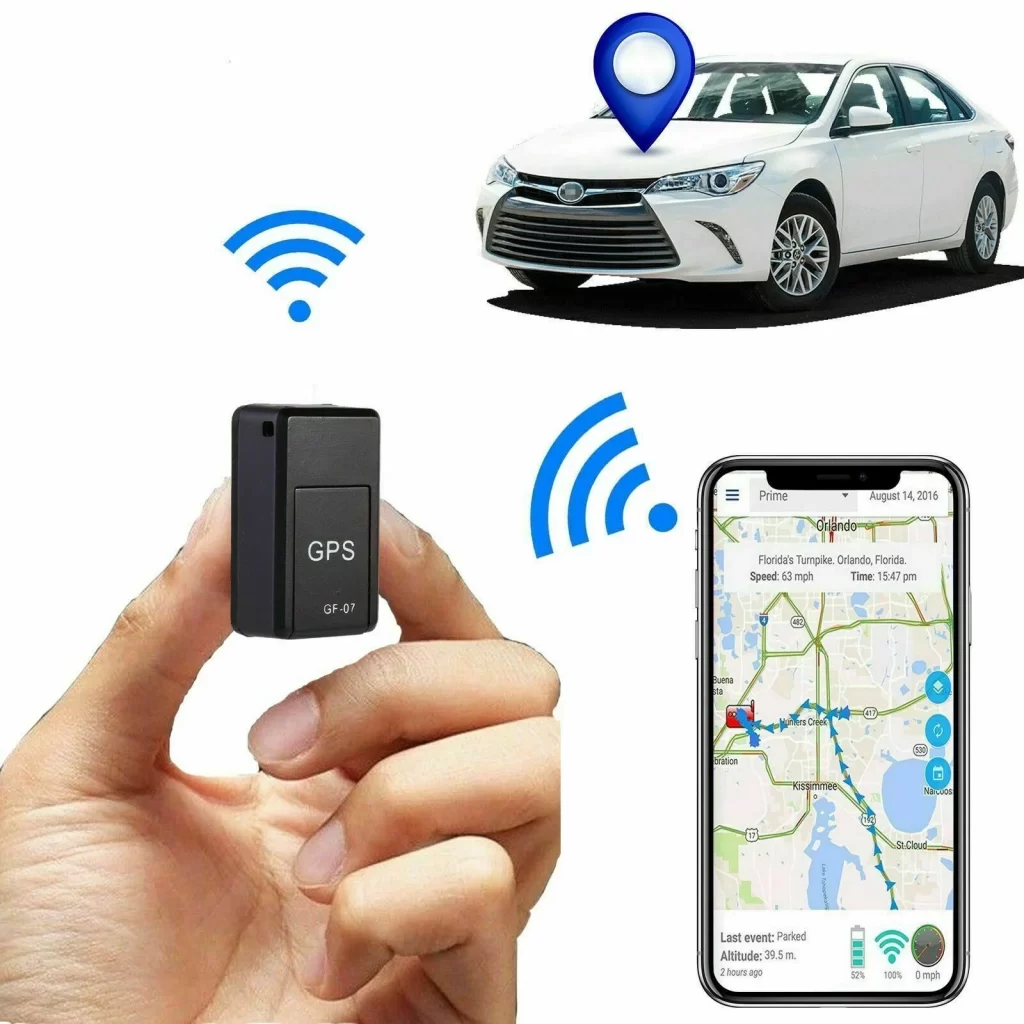GPS tracking refers to the use of Global Positioning System (GPS) technology to track and monitor the location of vehicles, assets, or even individuals in real-time. A GPS tracking system typically consists of a GPS receiver that captures the location data and transmits it to a central server or cloud-based platform. This location data can then be accessed through a web interface or mobile app, providing users with up-to-date information on the position, speed, and other relevant details of the tracked vehicles or assets.

GPS tracking systems use a network of satellites in orbit around the Earth to accurately determine the location of a GPS receiver. These satellites transmit signals that are picked up by the receiver, allowing it to calculate its precise position. The receiver then sends this information to the tracking system’s server using cellular or satellite communication technology.
In addition to location tracking, GPS tracking systems often offer various features and functionalities, such as Geofencing (setting virtual boundaries and receiving alerts when a vehicle or asset enters or exits a specified area), vehicle diagnostics (monitoring fuel consumption, engine performance, etc.), driver behavior analysis (tracking speed, harsh acceleration/braking, etc.), and historical data analysis.
GPS tracking systems have numerous applications across industries, including logistics and transportation, construction, fleet management, personal vehicle security, and more. They provide valuable insights, enhance security, optimize operations, and improve overall productivity and efficiency.
In the following section, we will be exploring the benefits and applications of GPS tracking in Nigeria.
GPS Tracking of Vehicles and Assets in Nigeria
In recent years, the use of GPS tracking systems for vehicles and assets has gained significant popularity in Nigeria. These systems provide real-time location information and allow businesses and individuals to keep track of their fleet of vehicles and valuable assets remotely.
Benefits of GPS Tracking
Improved Asset Security: One of the main advantages of GPS tracking is enhanced security for vehicles and assets. By installing GPS trackers, you can monitor the real-time location of your vehicles or valuable assets, making it easier to track and recover them in case of theft or unauthorized use.
Fleet Management Optimization:
GPS tracking enables efficient fleet management by providing valuable insights about vehicle usage, driver behavior, and routes taken. With this information, businesses can optimize delivery routes, reduce fuel consumption, and improve overall operational efficiency.
Real-time Tracking and Monitoring:
GPS trackers provide real-time location updates, allowing fleet managers or asset owners to track the movement of vehicles and assets at any given time. This feature is particularly useful for monitoring delivery progress, ensuring timely arrivals, and identifying any potential delays or deviations from planned routes.
Increased Productivity:
With GPS tracking, businesses can monitor how their vehicles and assets are being utilized. This information can help identify areas for improvement, eliminate unnecessary idle time, and ensure maximum productivity of resources.
Applications of GPS Tracking in Nigeria
Logistics and Transportation:
The logistics and transportation industry in Nigeria greatly benefits from GPS tracking. It helps companies monitor delivery vehicles, optimize routes, and provide accurate estimated time of arrival (ETA) to customers. Additionally, it allows logistic companies to better manage their fleet, reduce fuel costs, and improve customer satisfaction.
Construction and Heavy Equipment:
GPS tracking technology is also widely used in the construction industry to track and monitor heavy equipment. This ensures that valuable machinery is kept safe and secure, prevents unauthorized use, and helps manage maintenance schedules effectively.
Fleet Management for Businesses:
Many businesses in Nigeria rely on a fleet of vehicles for daily operations. GPS tracking systems enable these businesses to monitor their fleet in real-time, efficiently dispatch vehicles, provide accurate delivery updates to customers, and optimize resource allocation.
Personal Vehicle Security:
GPS tracking systems can be installed in personal vehicles to increase security and provide peace of mind. In case of theft, the location information can be shared with law enforcement agencies for prompt recovery.
Conclusion
GPS tracking of vehicles and assets in Nigeria has become essential for businesses and individuals alike. The benefits of improved security, fleet optimization, real-time tracking, and increased productivity make GPS tracking systems a valuable investment. With the advancements in technology, these systems are becoming more affordable and accessible, making it easier for businesses and individuals in Nigeria to leverage their advantages.
